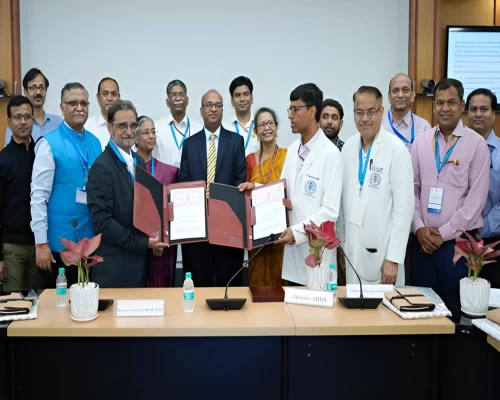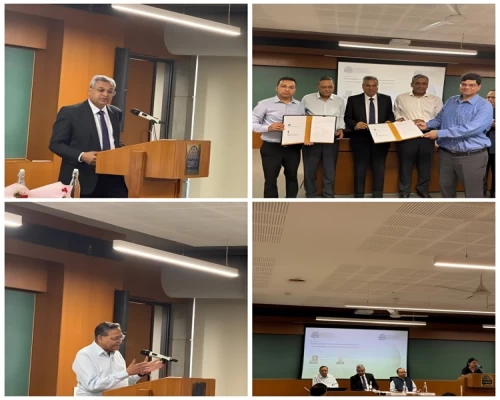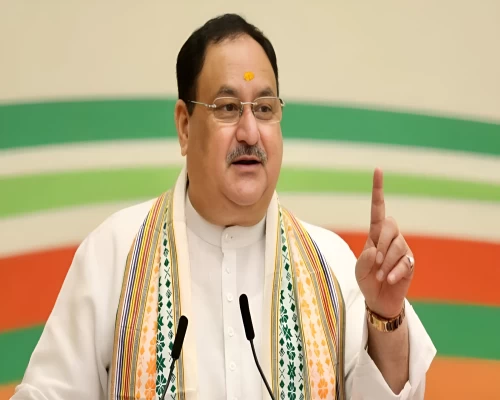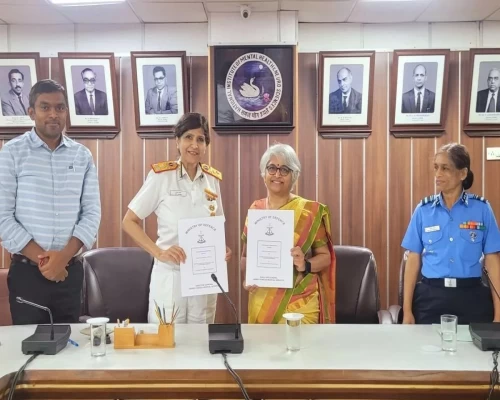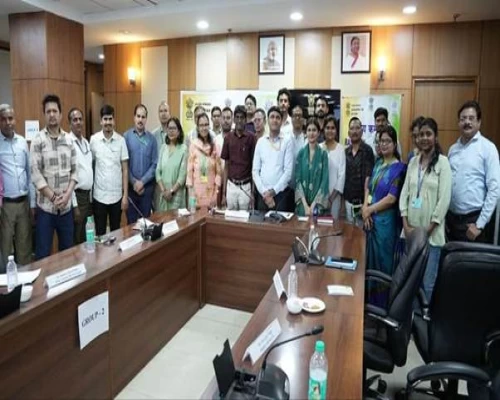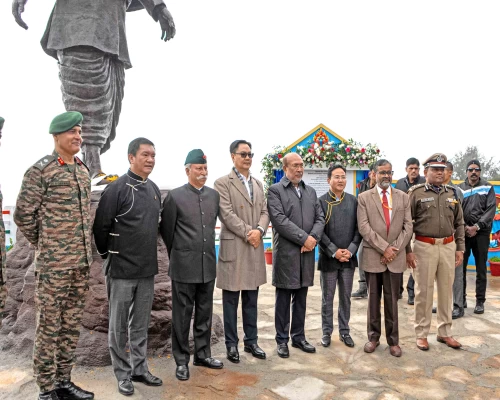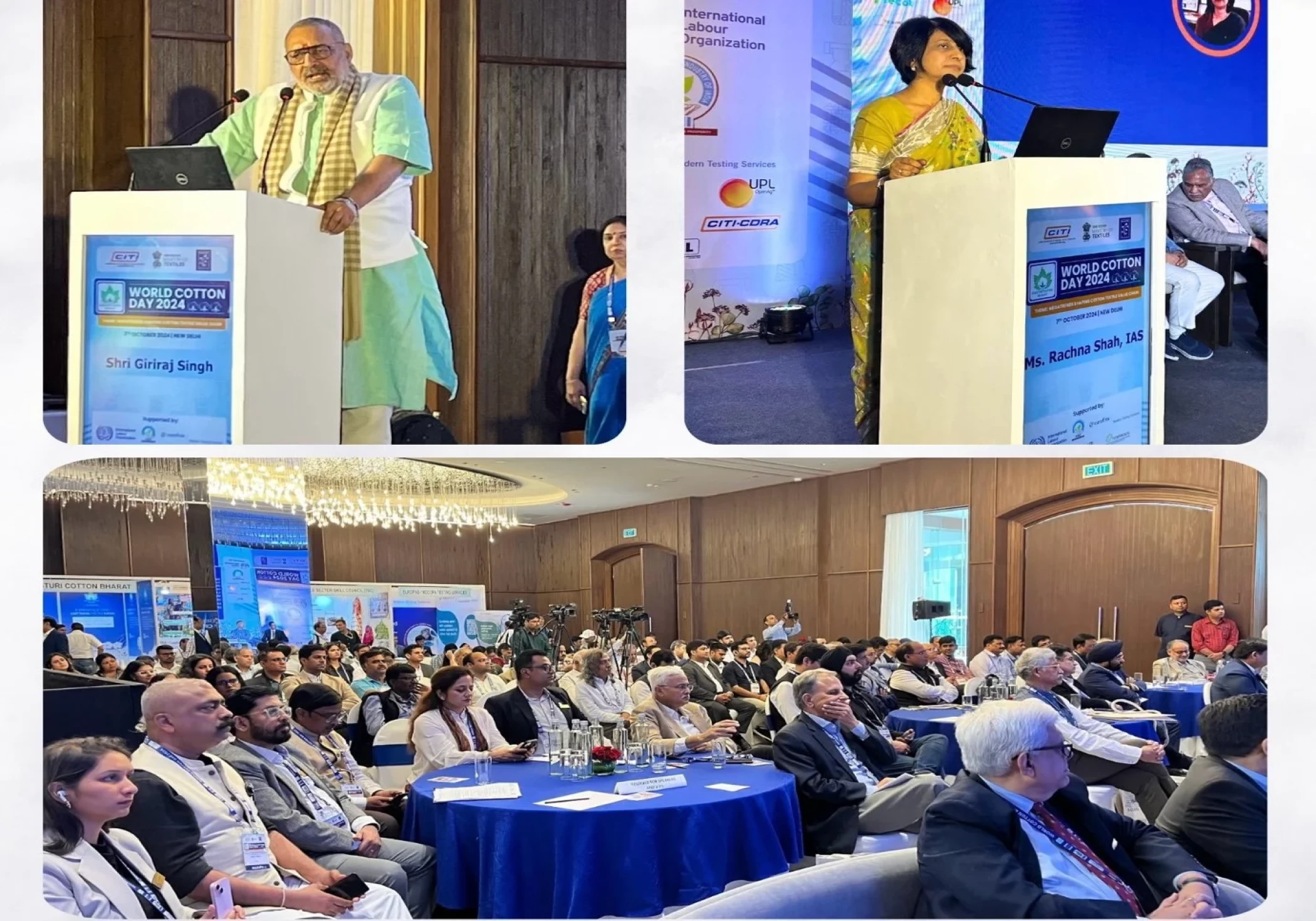
New Delhi: The Union Minister of Textiles, Giriraj Singh, attended the celebration of World Cotton Day 2024 in Delhi today. The Ministry of Textiles, in collaboration with the Confederation of Indian Textile Industries (CITI) and the Cotton Corporation of India, hosted the event focusing on the theme "Megatrends Shaping Cotton Textile Value Chain."
During his address, the Textiles Minister reiterated the government's commitment to achieving a target of USD 350 billion by 2030, including an export goal of USD 100 billion. He stressed that this can only be realised if all stakeholders in the cotton value chain collaborate. The Minister highlighted how the adoption of best farming practices, such as high-density planting, closer spacing, and drip fertigation, could potentially increase cotton yield to 1,500 kg per hectare, compared to the current national average of 450 kg per hectare. He emphasised the need for widespread adoption of these practices, noting that successful pilot projects could encourage more farmers to implement these methods for improved yields.
He also expressed concern about weed management issues in cotton farming, which increase labour costs for farmers. He pointed out that cotton, predominantly grown in black soil, presents challenges for timely weed management in wet conditions. The Minister urged stakeholders to address this issue with seriousness and explore the suitability of new seed technologies available globally, such as HT BT, for adoption in India.
Textiles Secretary Rachna Shah, in her address, highlighted the importance of the cotton economy, which directly provides a livelihood to six million cotton farmers and employs an additional 45 million people in various activities along the cotton value chain. She noted that cotton accounts for around 60% of the total fibre used in India, compared to 23% globally. However, she urged all stakeholders to focus on improving cotton productivity, as India currently ranks 35th in terms of yield. She called for a collaborative approach to address this productivity challenge across the entire cotton value chain.
Shubha Thakur, Additional Secretary, Ministry of Agriculture and Farmers Welfare, reaffirmed the government's commitment to increasing cotton yields and working closely with the Ministry of Textiles to encourage farmers to adopt best practices that can enhance their livelihoods.
Joint Secretary of the Ministry of Textiles, Prajakta Verma, emphasised the importance of sustainability and highlighted the Ministry’s encouragement of a collaborative approach through the formation of the Textile Advisory Group (TAG). She also discussed the inter-ministerial coordination aimed at increasing cotton production and yield, which would help farmers raise their incomes.
The Union Minister, along with other dignitaries, visited various exhibitor stalls showcasing Kasturi cotton products, recycled textiles, products made from scrap fabrics, handloom products, and more.
The one-day conference commemorating World Cotton Day 2024 highlighted best practices in sustainable farming, traceability, and the role of technology from farm to fashion. Brainstorming sessions covered topics such as "Enhancing Sustainability & Traceability," "Decent Work in Cotton Supply Chain," "Evolving Trends in Cotton Farming," and "Cotton Trading and Risk Management" aimed at improving the quality and productivity of cotton.
During the inaugural session, Additional Secretary Rohit Kansal outlined the country’s target of creating a textile ecosystem worth USD 350 billion by 2030, up from the current USD 176 billion. He urged stakeholders to be aware of the challenges posed by competing fibres, stressing that cotton must remain a legacy sector of India’s textile industry. He also emphasised that sustainability is essential for the cotton textile value chain.
Lalit Kumar Gupta, Chairman and Managing Director of the Cotton Corporation of India, highlighted CCI's role as a central nodal agency in empowering cotton farmers through the use of technology and providing an alternative market channel for selling their produce.
CITI Chairman Rakesh Mehra stressed that cotton, the oldest fibre in the textile industry, plays a vital role in driving economic growth, generating employment, and empowering women. He urged increased cotton production and productivity to ensure the industry receives raw materials at competitive prices.
BI Bureau
Also Read:







